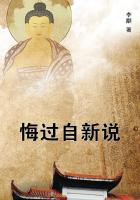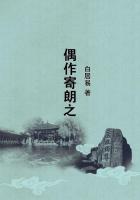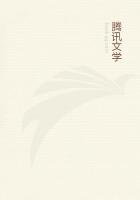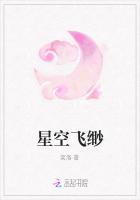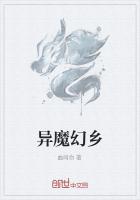They had not developed, much less had they published, their "general ideas." Even in his journal of the Cruise of the Beagle Darwin's ideas were religious, and he *****ly admired the works of God. It is strange that Mr Harrison has based his criticism, and his theory of Tennyson's want of originality, on what seems to be a historical error. He cites parts of In Memoriam, and remarks, "No one can deny that all this is exquisitely beautiful; that these eternal problems have never been clad in such inimitable grace . . . But the train of thought is essentially that with which ordinary English readers have been made familiar by F. D. Maurice, Professor Jowett, Ecce Homo, Hypatia, and now by Arthur Balfour, Mr Drummond, and many valiant companies of Septem [why Septem?] contra Diabolum." One must keep repeating the historical verity that the ideas of In Memoriam could not have been "made familiar by" authors who had not yet published anything, or by books yet undreamed of and unborn, such as Ecce Homo and Jowett's work on some of St Paul's Epistles. If these books contain the ideas of In Memoriam, it is by dint of repetition and borrowing from In Memoriam, or by coincidence. The originality was Tennyson's, for we cannot dispute the evidence of dates.
When one speaks of "originality" one does not mean that Tennyson discovered the existence of the ultimate problems. But at Cambridge (1828-1830) he had voted "No" in answer to the question discussed by "the Apostles," "Is an intelligible [intelligent?] First Cause deducible from the phenomena of the universe?" He had also propounded the theory that "the development of the human body might possibly be traced from the radiated vermicular molluscous and vertebrate organisms," thirty years before Darwin published The Origin of Species. To be concerned so early with such hypotheses, and to face, in poetry, the religious or irreligious inferences which may be drawn from them, decidedly constitutes part of the poetic originality of Tennyson. His attitude, as a poet, towards religious doubt is only so far not original, as it is part of the general reaction from the freethinking of the eighteenth century. Men had then been freethinkers avec delices. It was a joyous thing to be an atheist, or something very like one; at all events, it was glorious to be "emancipated." Many still find it glorious, as we read in the tone of Mr Huxley, when he triumphs and tramples over pious dukes and bishops. Shelley said that a certain schoolgirl "would make a dear little atheist." But by 1828-1830 men were less joyous in their escape from all that had hitherto consoled and fortified humanity.
Long before he dreamed of In Memoriam, in the Poems chiefly Lyrical of 1830 Tennyson had written -"'Yet,' said I, in my morn of youth, The unsunn'd freshness of my strength, When I went forth in quest of truth, 'It is man's privilege to doubt.' . . .
Ay me! I fear All may not doubt, but everywhere Some must clasp Idols. Yet, my God, Whom call I Idol? Let Thy dove Shadow me over, and my sins Be unremember'd, and Thy love Enlighten me. Oh teach me yet Somewhat before the heavy clod Weighs on me, and the busy fret Of that sharp-headed worm begins In the gross blackness underneath.
Oh weary life! oh weary death!
Oh spirit and heart made desolate!
Oh damned vacillating state!"
Now the philosophy of In Memoriam may be, indeed is, regarded by robust, first-rate, and far from sensitive minds, as a "damned vacillating state." The poet is not so imbued with the spirit of popular science as to be sure that he knows everything: knows that there is nothing but atoms and ether, with no room for God or a soul.
He is far from that happy cock-certainty, and consequently is exposed to the contempt of the cock-certain. The poem, says Mr Harrison, "has made Tennyson the idol of the Anglican clergyman--the world in which he was born and the world in which his life was ideally passed--the idol of all cultured youth and of all aesthetic women. It is an honourable post to fill"--that of idol. "The argument of In Memoriam apparently is . . . that we should faintly trust the larger hope."That, I think, is not the argument, not the conclusion of the poem, but is a casual expression of one mood among many moods.
The argument and conclusion of In Memoriam are the argument and conclusion of the life of Tennyson, and of the love of Tennyson, that immortal passion which was a part of himself, and which, if aught of us endure, is living yet, and must live eternally. From the record of his Life by his son we know that his trust in "the larger hope"was not "faint," but strengthened with the years. There are said to have been less hopeful intervals.


